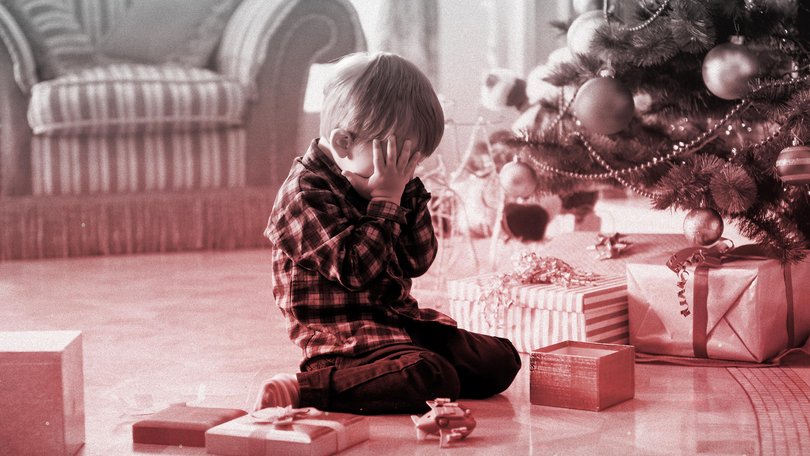Christmas shopping comes early as Aussies chase Black Friday discounts
Australians are buying more gift cards and budget goodies or fast tracking their Christmas shopping to this month’s Black Friday sales to save money now, retail insiders say.

Australians are buying more gift cards and budget goodies or fast tracking their Christmas shopping to this month’s Black Friday sales to save money now, retail insiders say.
The worst inflation figures in more than a year are widely expected to turn the Reserve Bank of Australia into the Grinches who won’t cut interest rates before Christmas. Or next year for that matter.
Former Myer chief executive Bernie Brookes said Australians would increasingly be turning to gift cards and less expensive items as gifts this year.
Sign up to The Nightly's newsletters.
Get the first look at the digital newspaper, curated daily stories and breaking headlines delivered to your inbox.
By continuing you agree to our Terms and Privacy Policy.“For the industry as a whole, you’re going to see downtrading to more practical Christmas gifts. Things such as hampers, as an example, and you’re going to see more basic garments purchased which are really practical,” he told The Nightly.
“The increasing gift cards will also be prevalent as well.“
For some, the Reserve Bank of Australia’s three rate cuts in 2025 are no longer boosting hopes of a strong Christmas shopping period.
“The surprise increase in the rate relevant to inflation means that people are going to be subdued,” Mr Brookes said.
“It will have a dent on Christmas trade and even Black Friday trade.
“The ambition was going to be an improved Christmas. Getting last year’s Christmas numbers will be a big accomplishment for retailers.”
But rather than stop buying gifts altogether, the e61 Institute’s head of research Gianni La Cava says consumers are increasingly doing their Christmas shopping now to save money, with just two days left of the Black Friday sales.
“That could be quite telling as to whether people bring forward their Christmas spending to now to try and take advantage of all the sales,” he told The Nightly.
“Definitely, over the last few years, we are seeing more of that happening. That people are becoming more budget conscious with the high cost of living. I don’t think this year is going to be any different.”
Demand is likely to still be strong for new appliances with the Westpac-Melbourne Institute consumer sentiment barometer for November showing Australians are a lot more inclined to buy a major household item now than they were in 2023 and 2024, when inflation was even higher.
Department store spending levels are also holding up in positive territory, although credit and debit card spending last month was a bit weaker than October 2024, e61 Institute and Illion data showed. Spending on holidays is firmer than a year ago too, suggesting there will be more competition for accommodation that limits beach getaway choices.
Mr La Cava said Christmas shoppers would be switching to cheaper electronic goods or toys for their children to fit within their budgets.
“Maybe the kids are not getting a bike this year. Maybe they’re getting a scooter,” he said.
“They may not be getting the latest PlayStation game.”
No relief
Borrowers in particular would be particularly tight with their money, given the futures market sees no more rate cuts occurring in 2025 or 2026.
One-year Australian government bond yields rose by eight basis points on Wednesday to 3.73 per cent which is higher than the Reserve Bank of Australia’s 3.6 per cent cash rate. This is another sign financial markets see no relief for mortgage holders.
Fewer mortgage lenders now have a fixed rate under 5 per cent, with Canstar data showing the number falling to 36 in November, down from 46 a month ago.
Canstar data insights director Sally Tindall said lenders were now increasingly turning their minds to the possibility of rate hikes in 2026.
“The conversation is now shifting to whether the cutting cycle has already run its course, and potentially, what it would take for the central bank to revert back to hikes,” she said.

